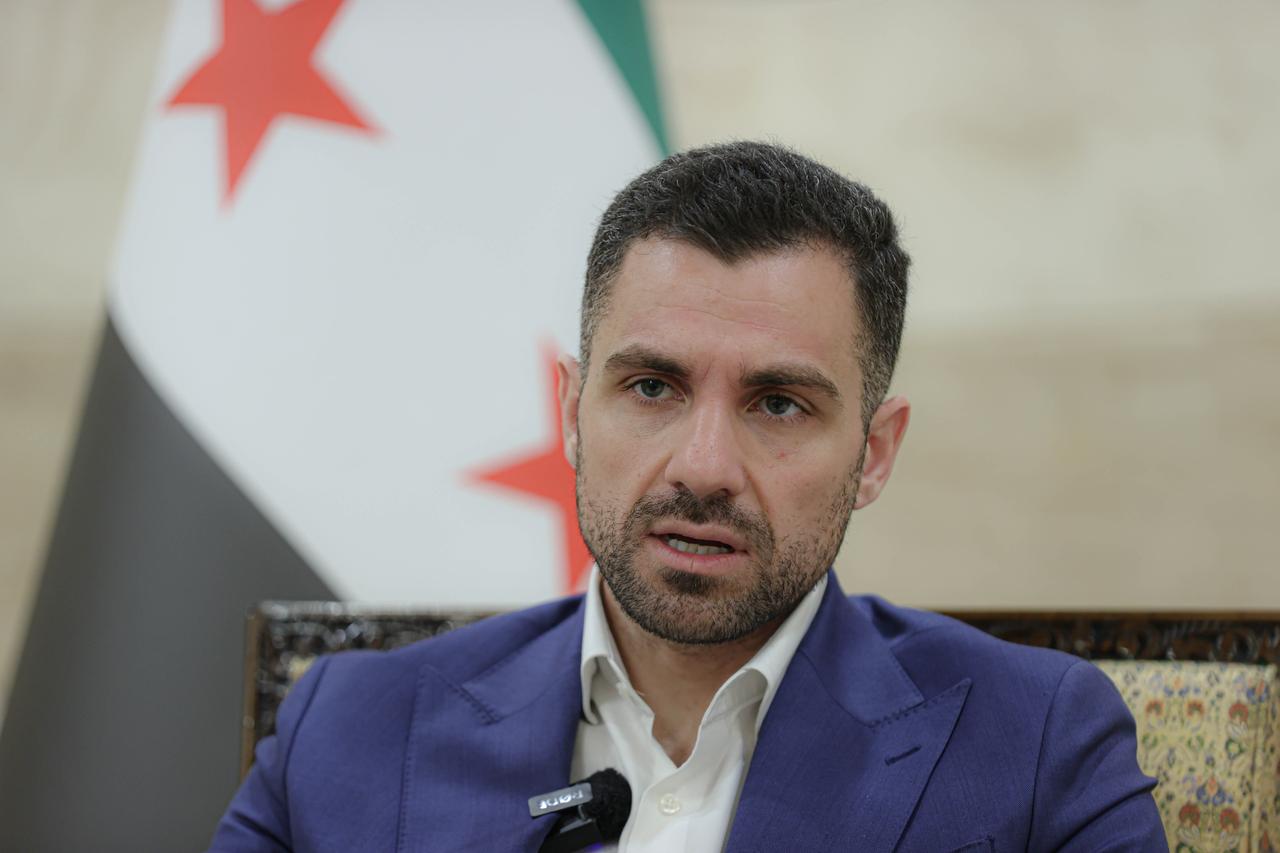
A senior Syrian Foreign Ministry official of Kurdish origin has outlined the government's approach to integrating the country's northeastern regions while emphasizing the historical role of Kurds in Syrian society and Türkiye's continued strategic importance.
Qutaiba Idlbi, director of American Political Affairs at the Syrian Foreign Ministry, told state-owned Anadolu Agency's (AA) correspondent on Tuesday that integration efforts are ongoing for Syria's northeastern regions, drawing on centuries of Kurdish participation in Syrian governance.
"As a Kurd, I say the Kurdish experience in Syria is not new. Hundreds of thousands of Kurds have lived in this country for centuries. There were even three Kurdish-origin presidents in Syrian history," Idlbi said, adding: "This shows that Kurds are accepted and influential in Syrian society. Let us preserve our identity and fully integrate into the Syrian identity."
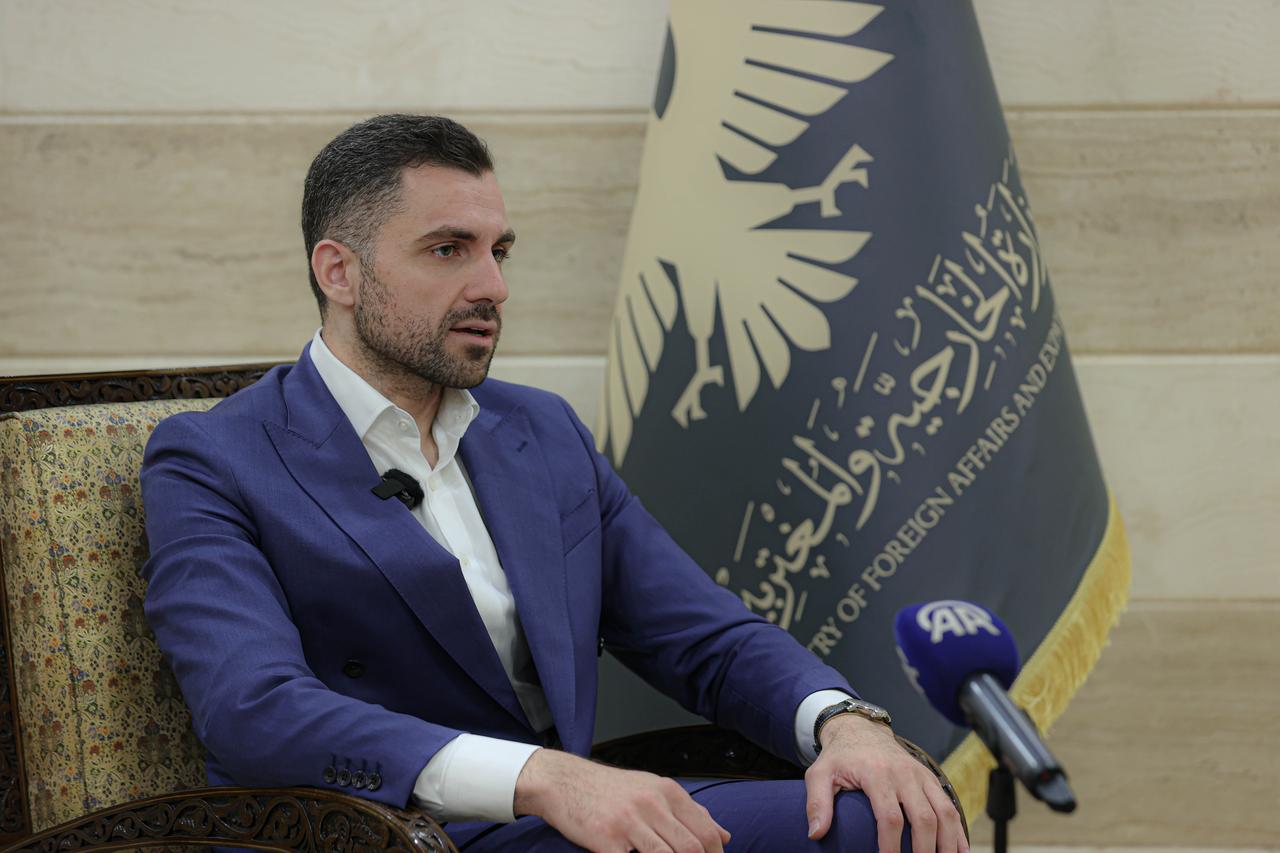
Idlbi emphasized that solutions for Kurdish communities should build on existing historical foundations rather than creating new administrative frameworks that could destabilize the region.
"We understand the current situation and the SDF's connections with Kurdish communities. But at the same time, we clearly say that the SDF does not represent all Syrian communities in the northeast. We need to accept this fact and move to the next stage. That is a solution that satisfies the local people in these regions and is compatible with the new model of the Syrian state," he explained.
The Syrian official stressed that past problems faced by Kurds can now be resolved through political means, citing specific measures such as restoration of citizenship and enriched educational curricula.
"Each region can decide within itself which lessons to add. Kurdish communities can add Kurdish to their education, and Turkmen communities can add Turkish. This can be implemented within a large framework," Idlbi said.
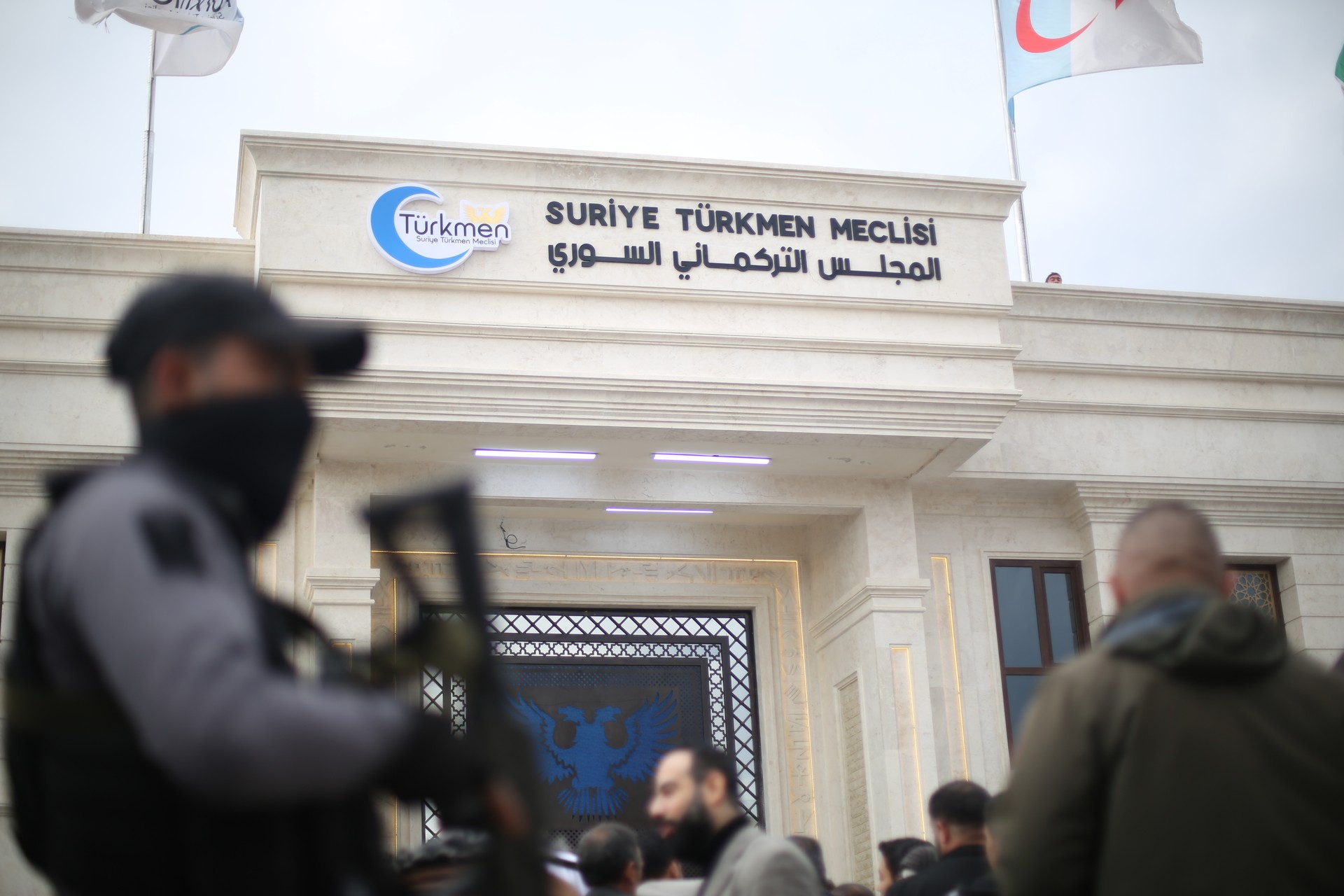
Idlbi referenced ongoing negotiations based on the March 10 Agreement between Syrian President Ahmed al-Sharaa and Ferhat Abdi Sahin, code-named Mazloum Abdi, noting that implementation mechanisms are being accelerated with international involvement from the United States and France in Paris.
However, he highlighted internal divisions within the terrorist organization YPG-led SDF's organization that have hampered progress on agreed measures, including the reactivation of Tishrin Dam and withdrawal from the Sheikh Maksoud neighborhood.
"It seems there are different opinions within the leadership. Some seriously want the implementation of the agreement, while others are looking for excuses to delay implementation," Idlbi observed.
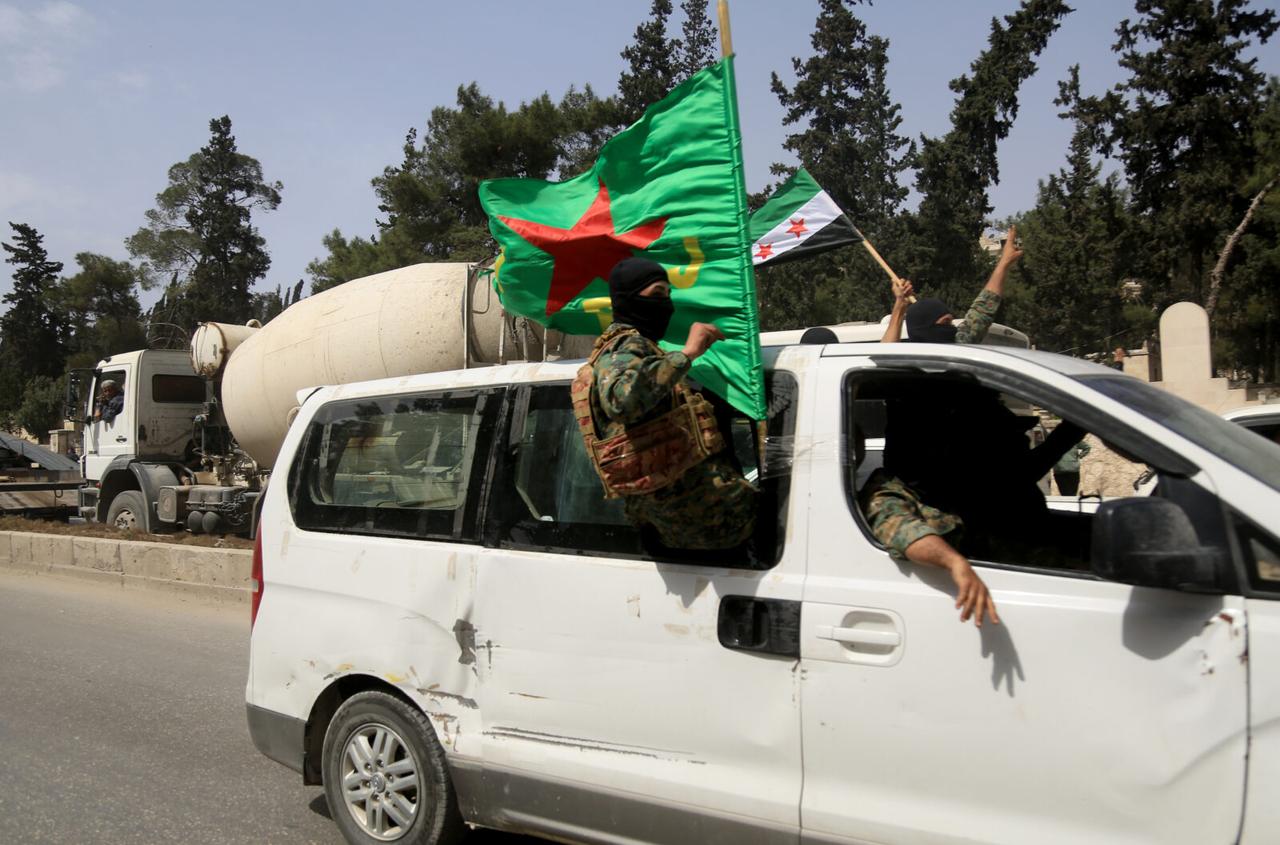
Addressing questions about PKK/YPG demands to join the Syrian army as a bloc while maintaining organizational identity, Idlbi was categorical in his response.
"The March 10 Agreement is very clear on this issue. Integration really means full participation in state institutions. Structures like an army within an army or state within state can never be accepted in Syria," he said.
Idlbi explicitly rejected Lebanese Hezbollah-style models for Syria, stating: "We don't want models like Lebanese Hezbollah in Syria, and this model won't bring success. Therefore, the basis of negotiations is very clear. We say that state institutions are open to everyone who wants to serve and protect their country, whether civilian or military. We are absolutely committed to these principles. There can be no backing down. Syria's progress can be built on these solid foundations."
Idlbi emphasized Türkiye's continued strategic importance for Syria's future, highlighting Ankara's diplomatic efforts in sanctions relief.
"The Turkish government, under the leadership of President Recep Tayyip Erdogan, has taken effective steps to ease international sanctions against Syria, especially by making intensive efforts on the political level. As a result of long negotiations that Ankara conducted with Washington, the U.S. was pressured to lift sanctions against Syria," Idlbi said.
"Türkiye will continue to play a big and key role in the future as it has in the past," he added, noting that Syrian officials recognize the country cannot escape its geographical reality and prioritize partnerships with regional actors.
Drawing on his personal background, Idlbi emphasized the deep historical connections between Türkiye and Syria that extend beyond mere border proximity.
"The relationship between Türkiye and Syria is not just about being border neighbors. On the contrary, it is based on a deep and common history spanning centuries," he said.
"I am personally a Syrian Kurd. My family settled south of Aleppo hundreds of years ago to protect the southern borders of the Ottoman Empire. This common history cannot be ignored. On the contrary, this history creates a strong ground to take relations with Türkiye even further," Idlbi stated.
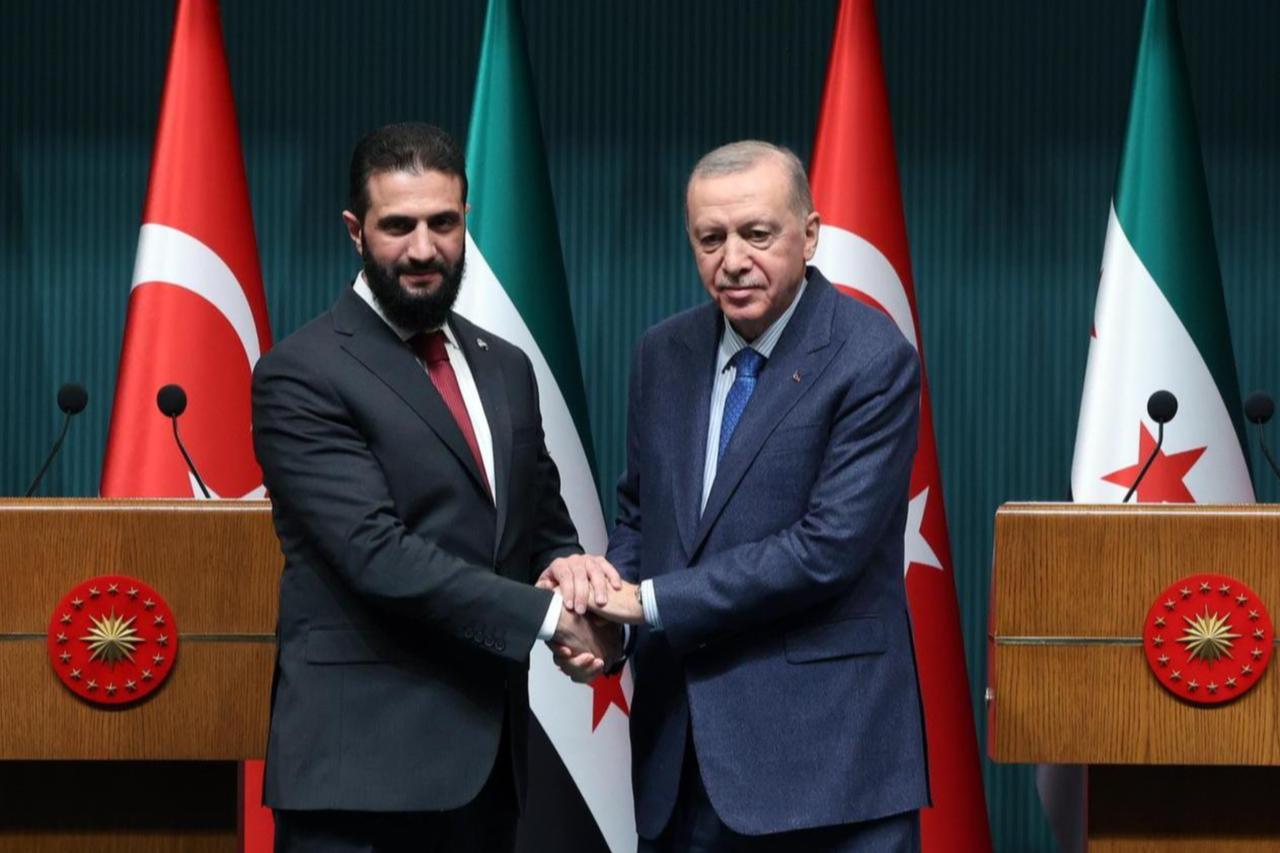
Idlbi described Syria as a "security valve" for Middle East stability, noting that cooperation with the Syrian government operates on this understanding.
"Supporting Syria's stability is the only way to guarantee regional stability. Syria today serves as a barrier preventing the spread of Iran and its affiliated militias in the region. At the same time, it prevents other parties' attempts to destabilize the region," he explained.
Regarding Israeli military actions in Syria, Idlbi stated: "Syria's greatest need is for attacks on its territory to end. Israel's withdrawal from the places it entered in Syria after Dec. 8, 2024, forms the minimum ground for regional stability."
He claimed Washington shares concerns about Israeli interventions: "The U.S. understands this balance very well. Therefore, it is putting pressure on all parties, including the Israeli side, to stop this policy as much as possible."
Lastly, discussing American policy toward the terrorist organization PKK/YPG, Idlbi indicated significant changes in the U.S. approach to counter-Daesh operations in Syria.
"America is making a fundamental change in the fight against Daesh," he said, explaining that the U.S. Defense Department's budget request for PKK/YPG operations represents a "technical proposal" that will be superseded by new arrangements.
"America clearly told us that the main partner in the fight against Daesh in the coming period will be the Syrian government. After the agreement is implemented, all kinds of cooperation, partnership, or support will be provided directly through the Syrian government. This situation will also be reflected in the relevant budgets of the US administration in the future," Idlbi concluded.